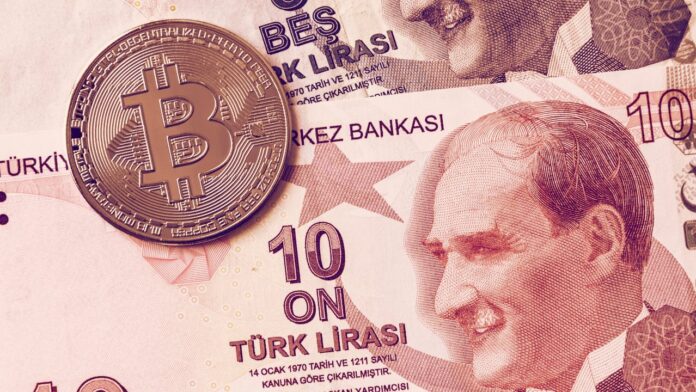ISTANBUL: Kebab chef Kadir Oner hoped to boost his new business by accepting payment in cryptocurrencies, but a ban by Turkish authorities will force him next month to fall back on payment methods as traditional as his spit-roasted meat.
Interest in cryptocurrencies has boomed in Turkey, where double digit inflation and a tumbling lira make them an attractive alternative investment, and Oner says that customers used them to settle between 5% and 10% of their bills.
“The world is adapting to the digital era and we have to get on board with it,” Oner said adding that crytopayments were easier than bank transactions and would have accounted for a growing slice of his doner kebab sales if allowed to continue.
But Turkey’s Central Bank sees dangers in the new practice, and on April 16 banned the use of cryptocurrencies and crypto assets for purchases from April 30, citing “irreparable” damage and transaction risks.
Authorities last week also launched investigations into possible fraud at two cryptocurrency exchanges, and the Central Bank Governor Sahap Kavcioglu said the Finance Ministry is working on wider regulations regarding cryptocurrencies.
Cryptocurrencies remain little-used for global commerce even as they become increasingly mainstream assets, although companies including Tesla and travel site Expedia Group do accept such payments.
In Turkey, businesses like hairdressers and small grocery shops started accepting payments out of convenience as they also held crypto coins, Altug Isler, the founder of the Kripto Teknik news website said.
If the sector were well regulated, there would be potential for more cryptocurrency transactions, he said, but the central bank had taken the “easiest option” by closing it all down.
“The ban has became a serious issue for the fintech firms working in this area and they have started taking the crypto payment ban to court,” Isler said. “I think the government will make an effort to bring regulations into the cryptocurrency market and loosen this ban.”
Trading volumes in Turkish crypto exchanges doubled on the weekend following the central bank ban on crypto asset payments compared to the previous weekend, according to data from U.S. researcher Chainalysis and trading data firm Kaiko shared with Reuters.
Cryptocurrency trading volumes often spike during periods of volatility, with short-term traders seeking to profit from swings in price. Many market players say this is a key attraction of the emerging asset.
PLANS SHELVED
In the covered halls of Istanbul’s 15th century Grand Bazaar, cryptocurrency exchange shop Cointral can no longer sell gold for cryptocurrencies, its founder Ugur Hakan Cakan said.
He also had to put on hold a new initiative for e-commerce websites offering crypto asset payments.
“We have been selling gold, real estate and we were preparing to launch a new service… but the project is shelved now with the new regulation,” Cakan said.
“I hope that this ban is a transition until the necessary regulations are put into implementation,” he said, adding that gold for cryptocurrency sales had been popular.
Chef Oner says he will survive the ban on cryptopayments, which had been used to purchase more than 1,500 of his kebabs since he opened in March, but he also hoped the move would be temporary.
“I am sure when the necessary legal regulations are made we will win back the customers we’ve lost due to this ban.”




